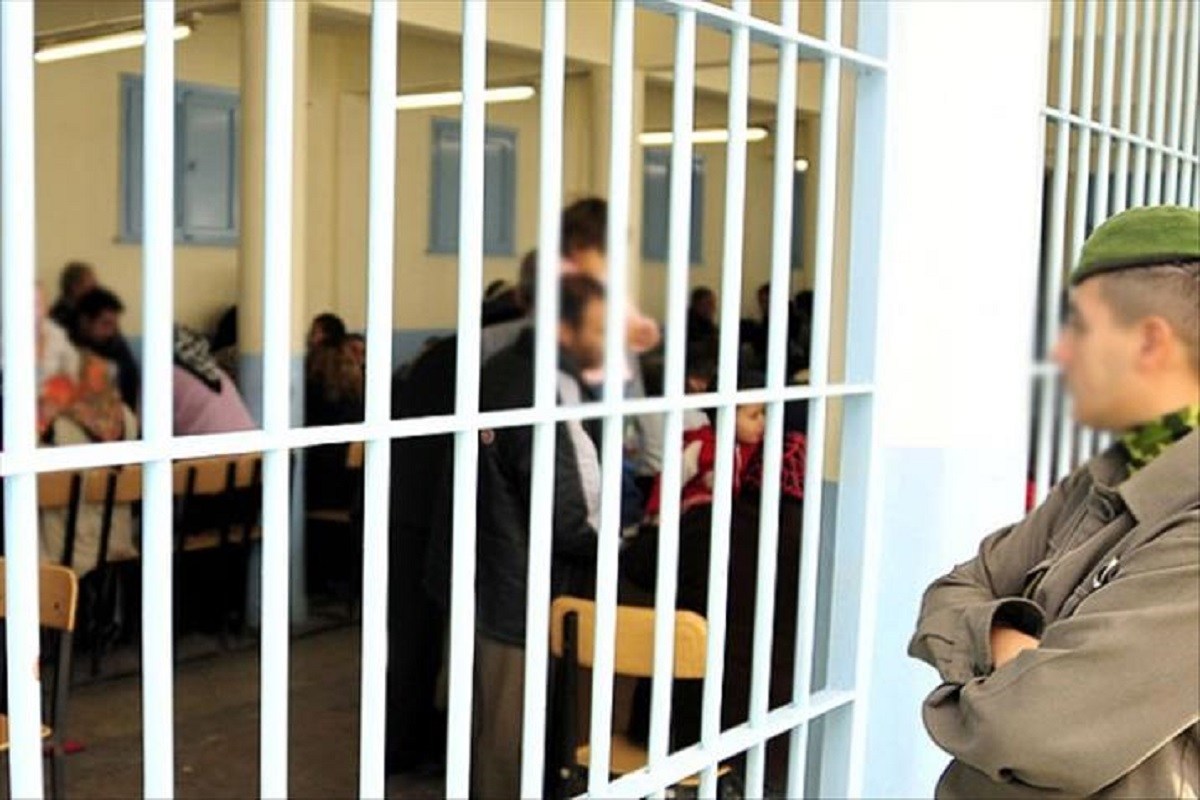Families of inmates have voiced protests as contact visitation in Turkish prisons has not been allowed since the beginning of the pandemic despite the lifting of restrictions even for such large gatherings as weddings and concerts.
Despite the fact that inmates have been vaccinated, the families can only see their loved ones behind glass panels during non-contact visits.
In contact visitation, the inmate and visitor are permitted in the same area without a barrier between them, under close supervision.

According to former judge Kemal Karanfil, inmates are by law entitled to contact visitation once every month. “They are also allowed contact visitation on religious and national holidays,” he said.
In a video message shared on Twitter last month, Başak Demirtaş, the wife of jailed Kurdish leader Selahattin Demirtaş, had said despite the lifting of many pandemic measures, contact visits were still not allowed and the number of non-contact visits were cut by half. “Let alone open visitation, this Eid we are not even allowed a non-contact visit. They didn’t even provide additional phone call privileges,” she said.
Önümüz Kurban Bayramı. Bayram görüşü yine yok. Her şey normalleşirken cezaevi görüşleri neden normalleşmiyor? @abdulhamitgul pic.twitter.com/WH0Wv0p4By
— Başak Demirtaş (@Basak__Demirtas) July 14, 2021
Human rights defender and Peoples’ Democratic Party deputy Ömer Faruk Gergerlioğlu said the ban on open visitations was intentional because inmates have been vaccinated. “Contact visitation has not been allowed for one-and-a-half years,” he said. “Contact visitation should be allowed immediately.”
1.5 yıldır cezaevlerinde açık görüş yok.
1.5 yıldır mahpuslar yakınlarını ancak camdan görebiliyor, telefondan dinleyebiliyor.
Bu kasdi bir yasak, çünkü mahpuslar Covid aşısı oldu.
AçıkGörüş Hemen serbest bırakılmalı.
— Ömer Faruk Gergerlioğlu (@gergerliogluof) August 26, 2021
The Turkish parliament passed an early parole law on April 14, 2020 aimed at reducing the inmate population of the country’s overcrowded prisons due to the pandemic. The legislation excluded political prisoners such as politicians, journalists, lawyers, academics and human rights defenders convicted under the country’s controversial counterterrorism laws and prompted calls from the UN and the EU for the non-discriminatory reduction of prison populations.
Source:Stockholm Center for Freedom (SCF)
***Show us some LOVE by sharing it!***



